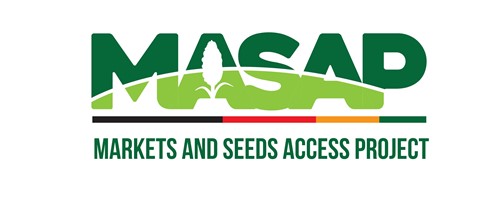Project
Improving food security resilience of Zambian and Zimbabwean smallholder households

Project
By increasing adoption and utilisation of improved open and self-pollinated varieties of small grains and legumes, the Markets and Seeds Access Project will strengthen seed and commodity value chains and create income opportunities especially among women and youth
What is MASAP?
NIRAS A/S in partnership with the Community Technology Development Organisation (CTDO) and the Research Institute of Organic Agriculture (FiBL) is implementing the first phase of the Markets and Seeds Access Project (MASAP) in Zimbabwe and Zambia. Funded by the Swiss Agency for Development and Cooperation (SDC), MASAP is a 12-year project which will be implemented in three phases of four years each. The first phase will run from December 2021 to November 2025 and focus on rolling out the project implementation in the four initial districts of Tsholotsho and Mudzi in Zimbabwe and Sioma and Chipata in Zambia. The second phase, from 2026 to 2029, is expected to consolidate the results from the first phase and provide opportunities for scaling up project activities through increasing the value chains and adding more districts across Zambia and Zimbabwe. The third phase, from 2030 to 2033, shall concretely embed all the system and structural changes inside the institutions to allow sustained project outcomes and a smooth phasing-out of the programme.
What is the vision for MASAP?
The overall goal of the programme is to improve resilience in food security of smallholder households (especially women and youth) by increasing adoption and utilisation of improved open and self-pollinated varieties of small grains (sorghum and millet) and legumes (cowpea and groundnut) through strengthening the seed and commodity value chains in Zambia and Zimbabwe. MASAP´s long term vision is the creation of a vibrant and community-driven seed and commodity market system, creating income opportunities and resilience for smallholder farmers – in particular women and the youth – supported by strong institutions, national and regional policies and innovative private sector actors. In so doing, MASAP will promote innovative ago-ecologically sensitive and other strategies and practices that ensure mitigation and adaptation to climate change by the smallholder farming households.

MASAP components and specific outcomes
Component 1: Adoption and utilisation of small grain and legume seed by smallholder farmers
Component 2: Private sector engagement
Component 3: Policy engagement and action learning research
What Does MASAP expect to achieve?
MASAP expects to reach approximately 94 000 smallholder farmers in the first phase (direct and indirect beneficiaries) and 5300 seed producers (direct beneficiaries) through the establishment of seed community-owned enterprises or associations and support to emerging second tier seed companies with a 60% and 40% increased women and youth participation respectively.
Who will benefit from MASAP?
The primary target group for phase 1 receiving direct support by the project will be smallholder farmers and seed producers in the target districts of Sioma, Chipata, Mudzi and Tsholotsho as well as community-owned enterprises, associations, researchers, agro-processors processors, breeders and policy makers.
How will MASAP function /or work?
MASAP will focus on improving the competitiveness and inclusiveness of the value chains using the Market Systems Development (MSD) approach, which seeks to fundamentally create sustainable, systemic change with large-scale impact across the MASAP portfolio. MASAP will consult and engage market actors and key informants on possible market-support actions for value chains and markets development. Specifically, the objective of the MSD approach is to catalyse a process that results in a market system that is:
✓ competitive—system actors are able to effectively innovate, upgrade and add value to their products and services to match market demand and maintain or grow market share;
✓ inclusive —delivering a sustainable flow of benefits to a range of actors, including the poor, women and youth and otherwise marginalized, as well as to society as a whole; and
✓ resilient—system actors are able to address, absorb and overcome shocks in the market, policy environment, resource base or other aspect of the system.
MASAP will support market actors to expand their outreach and strengthen responsible institutions in reaching their mandate rather than creating parallel structures. An evidence-based approach to practice, decisions and policy will be applied.
Download brief for more information
Visit MASAP's website
